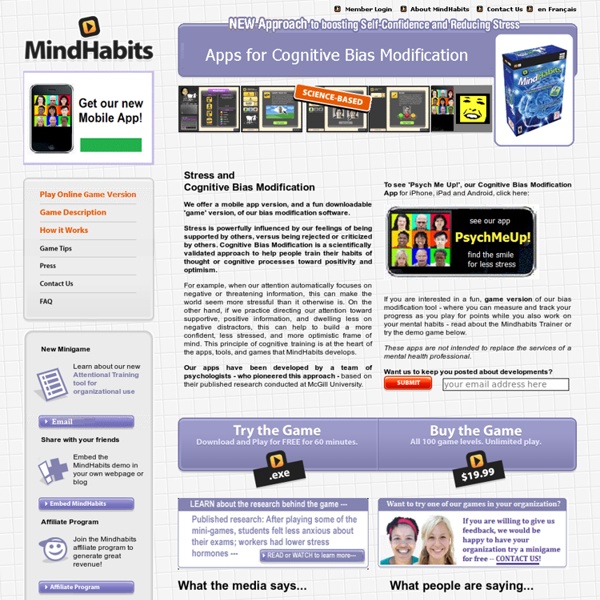MindHabits - Stress Relief Game

Brain Fitness and Cognitive Health Authority: Market Research and Advisory Services | SharpBrains
Efficiency Of Brain Training | HAPPYneuron
Let's do a bit of physiology - Do you know the essential features of brain training? Increasingly, scientific evidence tells us that we can dramatically increase the probability of staying mentally and physically fit throughout our lives.Physical exercise, good nutrition, social connection with others, and mental stimulation all play important parts in insuring that our brains remain sharp and agile. There are several physiological mechanisms to help keep your brain healthy: 1. Stimulated and therefore active neurons get more oxygen and nutritive elements. 2. Neural stimulation multiplies the number of connections between synapses. 3. In other words, complex mental activity can help protect the brain by building cognitive and brain reserves. Thus strengthened, we increase our neural network's capacity to face the effects of aging or neurodegenerative diseases. Stimulate your brain to preserve your cognitive skills 1. Several ongoing studies have come to similar conclusions.
Lumosity - Brain Games & Brain Training
Related:
Related:



